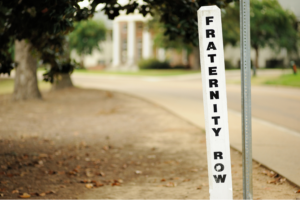Johns Hopkins is one of the top universities in the country, and like every other top university, it receives thousands of applications each year for a very small number of seats. This leads to a very low acceptance rate, and students eager to figure out what exactly Johns Hopkins is looking for in their applications.
We recently attended a virtual admissions event hosted by Johns Hopkins’ admissions officers. While no recording will be provided of this event, we will let you in on what we learned, and other insights we have into the admissions process at Hopkins, so you understand what they want to see from students. We’ll cover how they analyze applications, and then give specific advice for each aspect of your application. Let’s get started!
How Does Johns Hopkins Read Applications?
Like its peer institutions, Johns Hopkins uses a system called holistic admissions to read and analyze the applications they receive. This means that each application is read and considered as a whole when making admissions decisions. The decision to admit you will be based on the full context they glean from the application, with each piece having a certain weight.
Unlike some schools, admissions officers at Johns Hopkins will read the application in full even if there are questions about low grades. Schools such as MIT will immediately reject an application if the grades attached to it demonstrate that the student is not academically prepared for the school. Johns Hopkins will keep reading to see if there are mitigating circumstances which explain these grades. Note that having poor grades makes it much much harder to get accepted, but they will still review your entire application.
Due to this review process, admissions officers want you to include things in your application only if they are truly necessary. Each admissions officer reads thousands of applications each cycle, and including redundant or unnecessary information just makes their lives more difficult. Examples of unnecessary information include:
- Resumes which repeat what you put on your activities list
- Additional recommendation letters which do not provide additional context
- The full text of research papers
- Links to external websites or podcasts
For the links, admissions officers often can’t follow them due to the software they use to read applications. Even if they could, they don’t have time to watch that amazing documentary you made or listen to your podcast. Instead, you need to describe what you have done in the space provided to you.
Now that we’ve covered how admissions officers at Johns Hopkins review your application generally, let’s look at what they are looking for specifically from each piece of your application.
Academic Preparation for Johns Hopkins
When looking at your academic preparation, admissions officers try to build a full picture of you as a student, to see if you will be able to handle the rigor of courses at Johns Hopkins. They specifically examine:
- The courses you took and the grades you got in them. They want to see that you challenged yourself in your coursework, and that you were able to meet those challenges.
- Your class rank. While your application will not be directly compared to other applicants from your high school, they do want to see how you performed in the overall context of your school.
- Teacher recommendations. These are again about putting your performance in context. How you are in the classroom, and what traits you display there, matter for admissions officers trying to build a campus community.
- Evidence of academic passions. This is not required, but if you show significant evidence of pursuing your academic passions outside of the classroom, that will be considered for your academic preparation.
What they want to see overall is straightforward; that you have done well in high school, and that you are ready for the kind of work you will face in college. They want students who seek out academic challenges for themselves, and who are passionate about learning for its own sake.
Standardized Testing at Johns Hopkins
This is also part of their academic evaluation of applicants, except when it isn’t; the nuances involved in how Johns Hopkins evaluates test scores means that we’re going to go over it in this subsection, separate from the rest of the academic discussion.
Johns Hopkins describes themselves as test-preferred, though they are technically test-optional. This rather seems like a contradiction, but they explain that they do prefer to use standardized test scores to help put your application in context, but understand if you do not feel confident in supplying them.
We recommend students supply their test scores to Johns Hopkins if those scores fall into their median range or above. The average range for SAT scores is 1520-1560, and for ACT scores it’s 34-35. If your score is within or above that range, then it is probably worth sending scores.
If your score is below that range, but you have the highest scores in your school, then it is likely still worth sending in your scores. This is because your application is judged in context, and if you are significantly performing others in your context, then that is a good marker of future success.
What Johns Hopkins Wants in Your Activities List
Johns Hopkins’ main goal with the activities list is to understand what you spend your time on outside of the classroom environment. They want to see what you’re passionate about, and what you’ve dedicated yourself to. They accept a wide range of activities on this list.
Note that while ten spots are provided, you are not expected to fill all ten.You are more than welcome to of course, but should not feel obligated to. You may also combine related activities; for example if you went from student council member, to secretary, to vice president, to president, those can all be combined in a single activity, rather than requiring a separate entry for each instance.
Johns Hopkins also wants to be clear that not just registered and organized activities are worth including. If you have to spend large amounts of time caring for siblings or elderly relatives, or on work around the home like cooking or cleaning, these can and should be noted on your activities list. After all, this is a major place where you are spending your time and energy, and they want to know that.
Finally, the admissions officers noted no preference to a highly focused activity list from a highly diffuse one; they simply want to know what you are passionate about. We will note that showing off your passions is easier on a more focused list, but can also be done on a more rounded one with a range of activities.
What Johns Hopkins Wants to See in Your Essays
For an in-depth guide to how to write Johns Hopkins’ essays, including examples, see our essay guide for Johns Hopkins. In this section, we will focus on describing what admissions officers are looking for when they read your essays, both the personal statement and the supplementals.
The first thing stressed is that essay questions, especially supplemental essay questions, are asked for a reason. They want the answers to the questions to better understand who you are and how you will fit into their idea of Johns Hopkins, so whatever essay you write should directly answer the question at hand. For reference, here is Johns Hopkins’ supplemental essay question:
- How has your life experience contributed to your personal story—your character, values, perspectives, or skills—and what you want to pursue at Hopkins? (350-word limit)
This applies to the personal statement as well, though to a lesser degree; if you choose one of the prompts to answer, they do want to see that you’ve answered it. Overall in the essay, they want to get to know you better as a person, to understand who you are and what you will bring to campus.
This means that there is no singular right topic to write an essay about, nor are there wrong ones. That said, there are some essay topics they see quite often; dealing with a sports injury, why a student wants to be a doctor, the impact of a family member’s illness or death; this doesn’t mean you can’t or shouldn’t write about one of these topics, but that you should be deliberate in what you include in your essay, and make sure that the essay you write clearly tells your story, and shows who you are.
Finally, the most important thing they are looking for in your essays is authenticity. They don’t want you to write an essay because you think it’s what they want to hear. What they want is to read essays that encapsulate who you are as a person, and give them a sense of your authentic self. All they know about you is what you include in your application; this space is valuable, so use it wisely.
Other Admissions Considerations
Johns Hopkins does not offer interviews, so these will not be considered at all in your application. They also do not consider demonstrated interest, but we do still advise visiting campus if it is one of your top choice schools, to make sure the reality of it and your idea of it are compatible. Attending a summer program put on by Johns Hopkins will not increase your chances of acceptance, but you should still include such an experience on your activities list.
What will increase your chance of acceptance is applying Early Decision, or to a lesser extent Early Decision II. Like many of its peer schools, Johns Hopkins admits about half of its students through the early round, leading to a higher acceptance rate compared to the regular decision round.
Johns Hopkins does give preference in admissions to recruited athletes, but they ended the preference for legacy students in 2020. They do not disclose a preference for development students, but then universities generally do not.
Final Thoughts
In some ways, each elite college is looking for the same things in students; they want to see excellent grades, high test scores, and that you have actively pursued interesting passions. What each college is looking for specifically though can be more diverse. We hope that this article has shown you what specifically Johns Hopkins is looking for in applicants, and how they read the applications you submit.
If you want help crafting your own application for Johns Hopkins, or want to gain this level of understanding about another school, schedule a free consultation with us today. We have a detailed understanding of what top colleges want to see from applicants, and how they review your applications. Reach out today to learn how we can help you on your educational journey.





